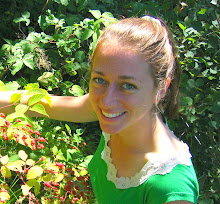Oxfam and Unilever: understanding the BoP
I was just at a meeting with Oxfam representatives, who came to Harvard Business School for feedback on a recent report, for which they had partnered with Unilever to study they company's impacts in Indonesia. The report covers a broad range of impacts - supply chain practices, value to consumers, the distribution of company profits among stakeholders, and much more. It's very lengthy, and full of useful data.
Essentially, Oxfam wants to figure out how to calculate a "poverty footprint" for a given company in a given country, and this report is the first attempt. They are now examining the methodology, and looking at what might be done better in the future.
This sort of exercise seems especially wise and timely as people in all sectors are getting excited about the "BoP" - or the Bottom of the Pyramid, a phrase coined by author C.K. Prahalad. The excitement has been good for getting business engaged in poverty reduction, but I've also been bothered by the lack of critical thought in some of these discussions. More business doesn't always or automatically help the poor. I'm glad Oxfam is trying to understand when it helps, when it hurts - and what can be done better.
Essentially, Oxfam wants to figure out how to calculate a "poverty footprint" for a given company in a given country, and this report is the first attempt. They are now examining the methodology, and looking at what might be done better in the future.
This sort of exercise seems especially wise and timely as people in all sectors are getting excited about the "BoP" - or the Bottom of the Pyramid, a phrase coined by author C.K. Prahalad. The excitement has been good for getting business engaged in poverty reduction, but I've also been bothered by the lack of critical thought in some of these discussions. More business doesn't always or automatically help the poor. I'm glad Oxfam is trying to understand when it helps, when it hurts - and what can be done better.


1 Comments:
Dear Melissa,
I've stumbled upon your blog thanks in part to a Google Alert I had set up for "Bottom of the Pyramid". I am an MBA student at the IESE Business School in Barcelona, Spain. Every year the students at IESE put together a conference called the "Doing Good and Doing Well" conference. Past participants include Muhammad Yunus, Ashoka and The Schwab Foundation.
This year the conference will be held on March 2-3 and I am in charge of creating an interesting and thought-provoking panel discussion related to CK Prahalad's book "The Fortune at the Bottom of the Pyramid......"
The reason I am contacting you is because your comments in this blog post resonated with me. I was originally thinking of including mainly success stories on the panel, but I am now wondering if someone from Oxfam would add a more socially-conscious dimension. At the end of the day I not only want to plant a seed in the minds of my fellow classmates that there are indeed profits to be had at the BOP, but I also want to leave them more socially-inspired and aware.
Now for the favor.......If you are in agreement my panel would be more well-rounded with someone from Oxfam, would you mind sharing with me some names so I can start the enormous task of trying to persuade them to come!
Also if you have any other ideas or thoughts I would love to hear them.
Thanks for your time.
Cheers,
Tammy Maloney
www.iese.edu/dgdw
Post a Comment
<< Home